Bone Density Test in Turkey
Healthy Türkiye helps you find the best bone density test in Turkey at affordable prices and adopts a 360-degree service approach in all areas of health through affiliated hospitals.
- Medical Treatment
- Medical Check-Ups in Turkey
- Colonoscopy in Turkey
- Vision Checkup in Turkey
- Electrocardiogram in Turkey
- General Check-Up in Turkey
- Hearing Screening Test in Turkey
- Allergy Skin Test in Turkey
- Gynecological Exam in Turkey
- Prostate Cancer Screening in Turkey
- Skin Cancer Screening in Turkey
- Stress Test in Turkey
- Bone Density Test in Turkey
- Diabetes Risk Test in Turkey
- Executive Check-Up in Turkey
- Gastroscopy in Turkey
- Sleep Lab in Turkey
- Homepage
- Medical Treatment
- Bone Density Test in Turkey
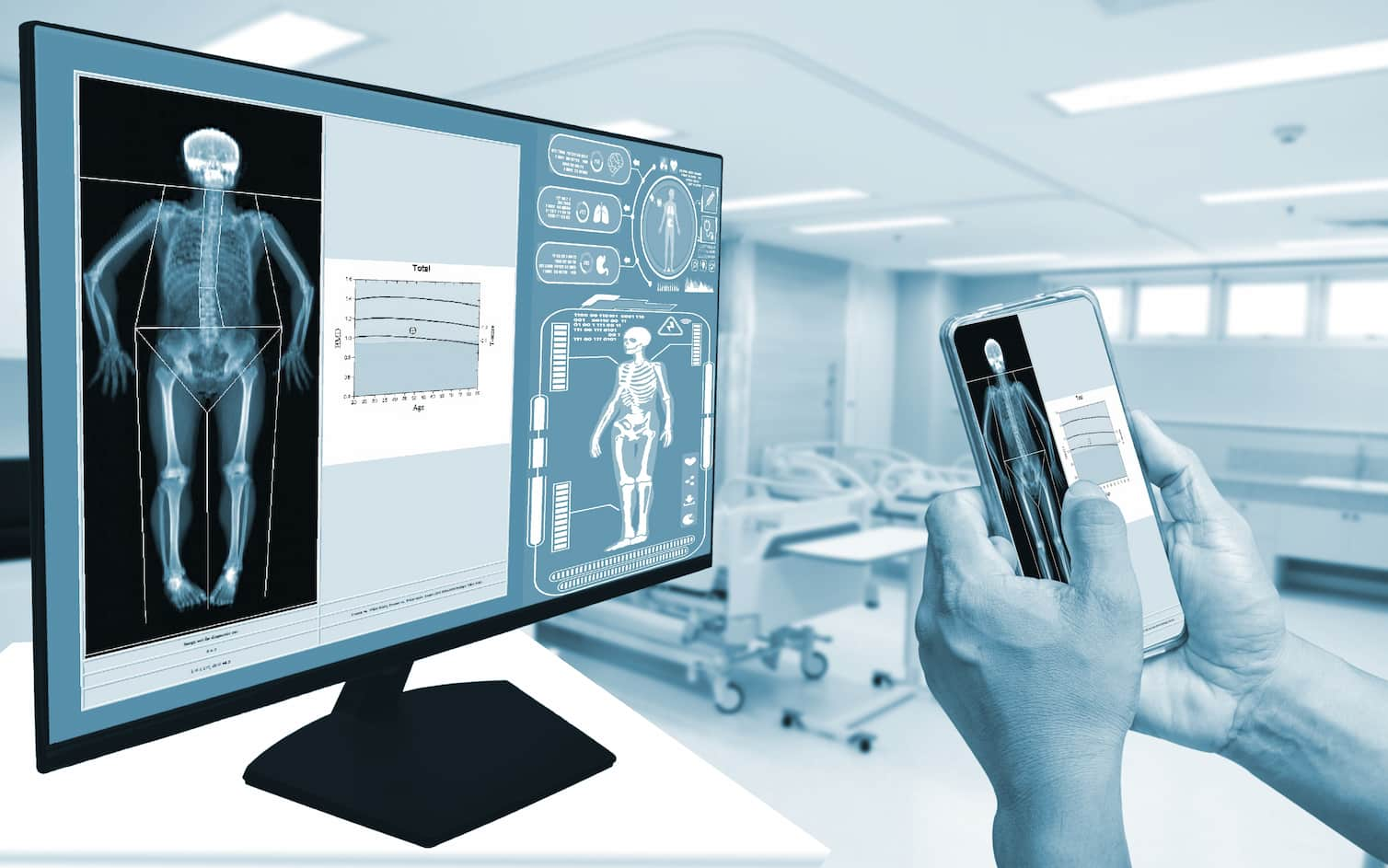
About Bone Density Test in Turkey
Bone density test is performed with the latest technological devices in Turkey. This way, the highest quality, and most accurate bone density test results can be accessed. Bone densitometry, also known as dual-energy x-ray absorptiometry, DEXA or DXA, applies a minimal dose of ionizing radiation to produce images of the inside of the body (generally the lower (or lumbar) spine and hips) to measure bone loss. It is often applied to diagnose osteoporosis and assess an individual’s risk for developing osteoporotic fractures. DXA is noninvasive, simple, and quick. It’s also the most commonly applied and standard method for diagnosing osteoporosis.
This bone density test needs little to no special preparation. You must tell your expert doctor and the technologist if there is a possibility you are pregnant or if you recently had a barium test or received an injection of contrast material for a CT or radioisotope scan. You should leave your jewelry at home and wear loose, comfortable clothing. You might be asked to wear a gown.
Specialists at Healthy Türkiye suggest a bone density test to be done once every two years, and this is the currently recommended timeframe. There may be exceptions to this rule if you have certain diseases. Your healthcare provider at Healthy Türkiye will consider various factors, such as your age, level of fracture risk, previous bone density tests, and current medications. Your healthcare provider at Healthy Türkiye will then make a personalized plan for how to assess and protect your bone health.
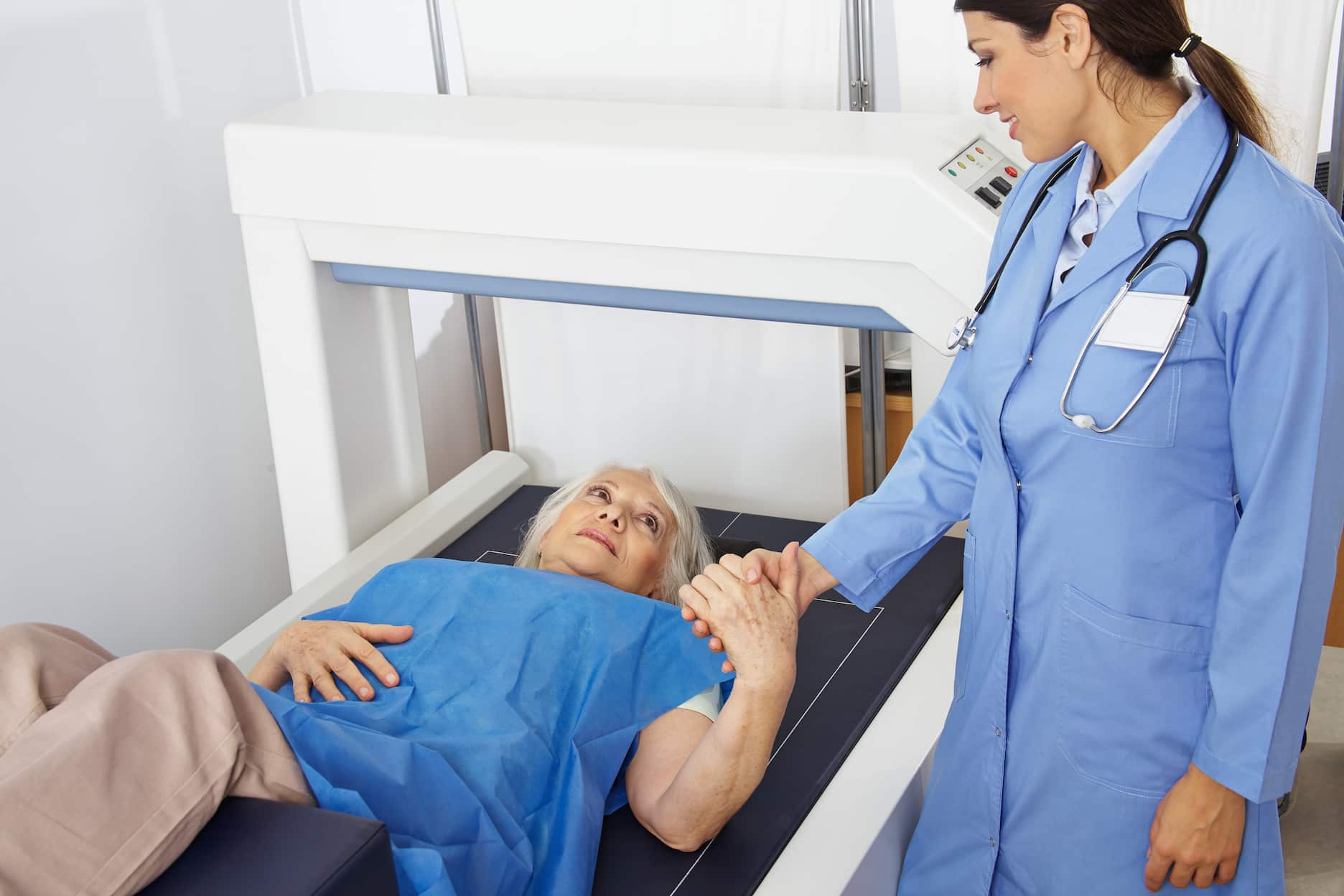
What Is Bone Density Test?
A bone density test is applied to measure bone mineral content and density. It might be done by applying X-rays, dual-energy X-ray absorptiometry (DXA or DEXA), or a special CT scan that uses computer software to determine the bone density of the hip or spine. For various reasons, the DEXA test is considered the “gold standard”, or most accurate test. This measurement shows the expert doctor whether there is decreased bone mass. This is a case in which bones are more brittle and prone to break or fracture simply.
A bone density test is used mainly to diagnose osteopenia and osteoporosis. It is also applied to determine your future fracture risk. The bone density testing procedure typically measures the bone density of the bones of the lower arm, spine, and hip. Portable testing might use the radius (1 of the 2 bones of the lower arm), fingers, wrist , or heel for testing, but is not as precise as the nonportable methods because only one bone area is tested.
Standard X-rays might show weakened bones. But at the point when bone weakness may be seen on standard X-rays, it might be too far advanced to treat. Bone densitometry testing could find decreasing bone density and strength at a much earlier stage when treatment could be beneficial.
When Is Bone Density Test Necessary?
A bone density test is mainly done to look for osteoporosis (thin, weak bones) and osteopenia (decreased bone mass) so that these problems can be cured as soon as possible. Early treatment aids to prevent bone fractures. The complications of broken bones related to osteoporosis are generally severe, particularly in the elderly. The earlier osteoporosis might be diagnosed, the sooner treatment might be started to improve the condition and/or keep it from getting worse.
Bone density testing might be used to:
Finding out the status of osteoporosis if you have had a bone fracture before
Determine your bone mass loss rate
Predict the chances of breaking a bone in the future
See if your treatment is working
There are various risk factors for osteoporosis and indications for densitometry testing. Some general risk factors for osteoporosis involve:
Not taking estrogen after menopause in women
Progression of age, women over 65 and men over 70
People who have had a hip fracture in the family before
Using cigarettes
Long-term use of steroids or some other drugs
Some diseases such as rheumatoid arthritis, type 1 diabetes mellitus, liver disease, kidney disease, hyperthyroidism , or hyperparathyroidism
Excessive use of alcohol
Finally, low BMI is also shown among the risk factors.
Prepare for the Bone Density Test in Turkey?
On the day of the bone density test in Turkey, you might eat normally. You must not take calcium supplements for at least 24 hours before your test. You can wear loose, comfortable clothing, avoiding garments that have zippers, belts, or buttons made of metal. Objects such as keys or wallets that would be in the site being scanned must be removed.
You might need to remove some clothing and/or change into a gown for the bone density test in Turkey. Remove jewelry, eyeglasses, removable dental appliances, and any metal objects or clothing that may interfere with the x-ray images. Inform your expert doctor at Healthy Türkiye if you have recently had a barium examination or have been injected with a contrast material for a computed tomography (CT) scan or radioisotope scan. You might have to wait 10 to 14 days before undergoing a bone density test.
Women must always tell their expert doctor and technician if they are pregnant. To avoid exposing the fetus to radiation, doctors will not perform various tests during pregnancy. If an x-ray is necessary, the expert doctor will get precautions to minimize radiation exposure to the baby.
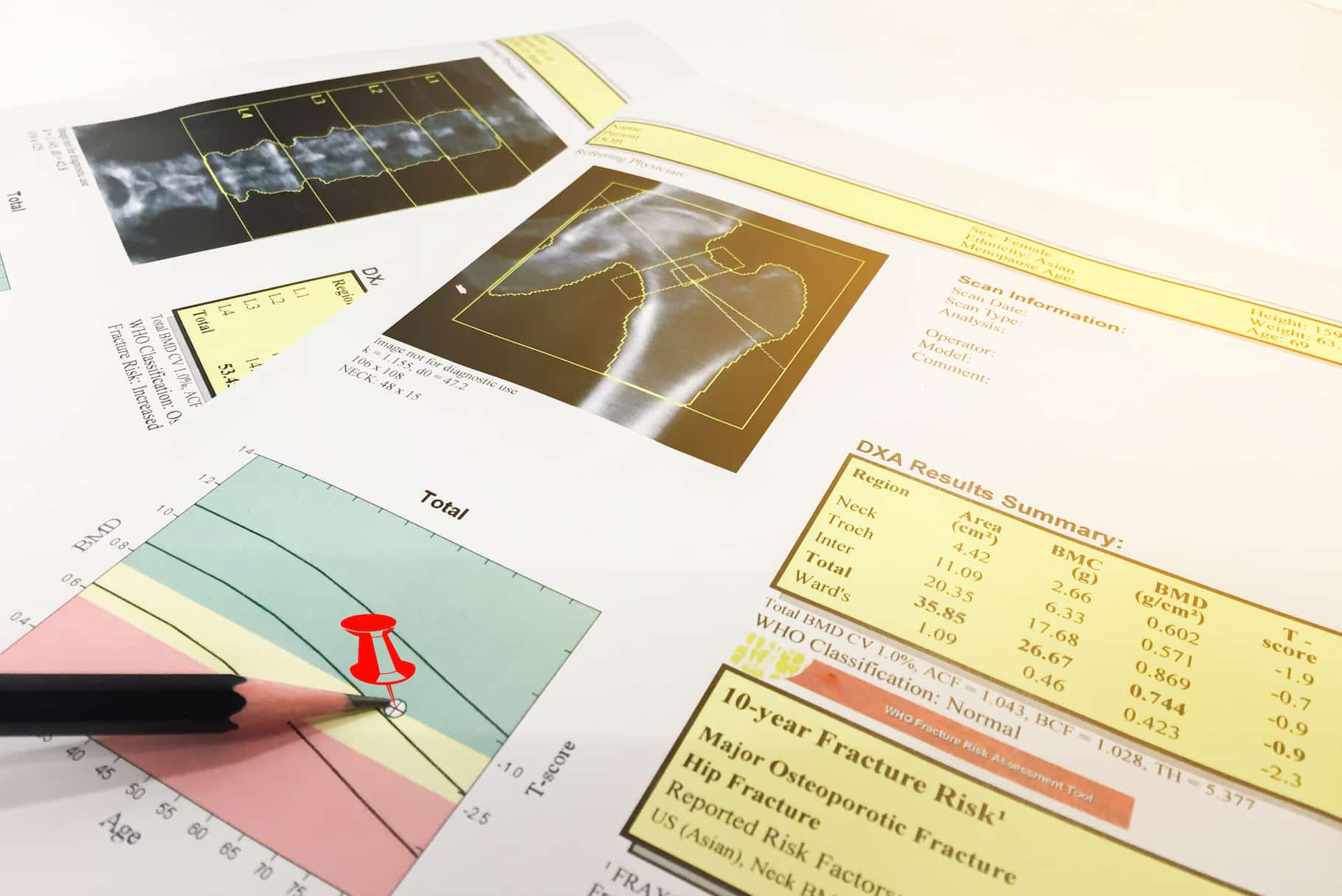
We Care About Your Health
Healthy Türkiye provides the best for your health and comfort. You will feel privileged with us.
7/24 Quality Personal Assistance Throughout Your Journey
Customizable for You All-Inclusive Packages
Get the Right Advice for your Health
How Is Bone Density Test Performed in Turkey?
A bone density test is a quick and painless procedure that includes lying on your back on an X-ray table so that an area of your body can be scanned. When you arrive in Turkey for your bone density test, no special preparations are needed. You might be asked to wear a gown, but in most conditions, you will be able to remain fully clothed. Your height and weight will be calculated. Two tests are taken, one of your lower spine and one of your left hip.
When scanning the spine, a cushioned box will be arranged under your knees. The cushioned box provides support for the small of your back or lower spine to lie flat on the table. To scan the hip, this cushioned box will be removed, and a triangular frame will be arranged between your feet. The frame provides the leg being scanned to be positioned accurately. The foot is strapped to the triangle by Velcro, and the knee can also be held in place by a velcro strap to hold the leg still.
The bone density test process in Turkey will need you to lie on your back on a flat, open X-ray table. To stop blurred images, you must lie very still. During a bone density test, a large scanning arm will be passed over your body to measure bone density. As the scanning arm moves slowly over your body, a narrow beam of low-dose X-rays will be passed through the part of the body being tested. A bone density test in Turkey generally takes around five minutes, although it depends on what part of the body is being scanned. You will be able to go home after you have had this scan done.
Bone Density Test Results
A bone density test defines bone mineral density (BMD). Your BMD is compared to two norms healthy young adults (your T-score) and age-matched adults (your Z-score). First, your BMD consequences are compared with the BMD results of healthy 25- to 35-year-old adults of your same sex and ethnicity. The standard deviation (SD) is the difference between your BMD and that of healthy young adults. This consequence is your T-score. Positive T-scores indicate the bone is stronger than normal; negative T-scores indicate the bone is weaker than normal.
According to the World Health Organization, osteoporosis is determined based on the following bone density levels:
If you have broken a bone easily before
If you are taking medication or have a medical condition that is known to affect bone strength
If you have a combination of a number of other risk factors for osteoporosis
It’s likely you also require a fracture risk assessment. This test takes into account all your osteoporosis risk factors, involving your bone density, to calculate your risk of breaking a bone. The results of your fracture risk assessment tell your expert doctor whether you require osteoporosis medication. If your risk of breaking a bone is high, they may consider a treatment to help strengthen your bones.
If your T-score is in the normal or osteopenia area, and you don’t have any other risk factors for osteoporosis, you don’t require further tests or treatment. Your expert doctor may recommend another scan in the future, to monitor your bone health. They can also suggest lifestyle advice, to help you protect your bones.
After Bone Density Test in Turkey
After your bone density test in Turkey is performed and the results are received, a number of analyses are performed. If your T-score is in the osteoporosis area, or you have other risk factors for osteoporosis, such as:
A T-score within 1 SD (+1 or -1) of the young adult mean indicates standard bone density.
A T-score of 1 to 2.5 SD below the young adult mean (-1 to -2.5 SD) indicates low bone mass.
A T-score of 2.5 SD or more below the young adult means (more than -2.5 SD) indicates the presence of osteoporosis.
It’s likely you also require a fracture risk assessment. This test takes into account all your osteoporosis risk factors, involving your bone density, to calculate your risk of breaking a bone. The results of your fracture risk assessment tell your expert doctor whether you require osteoporosis medication. If your risk of breaking a bone is high, they may consider a treatment to help strengthen your bones.
If your T-score is in the normal or osteopenia area, and you don’t have any other risk factors for osteoporosis, you don’t require further tests or treatment. Your expert doctor may recommend another scan in the future, to monitor your bone health. They can also suggest lifestyle advice, to help you protect your bones.
Is Bone Density Test Accurate?
Bone density tests in Turkey provide a high degree of precision and accuracy. Turkish medical experts consider bone density scans to be an accurate test for diagnosing osteoporosis. Unlike x-ray devices, bone density test devices are checked daily for their ability to measure bone minerals accurately, and no two DXA devices are exactly alike. That is why your healthcare provider will insist that you have all of your bone density tests done on the same device.
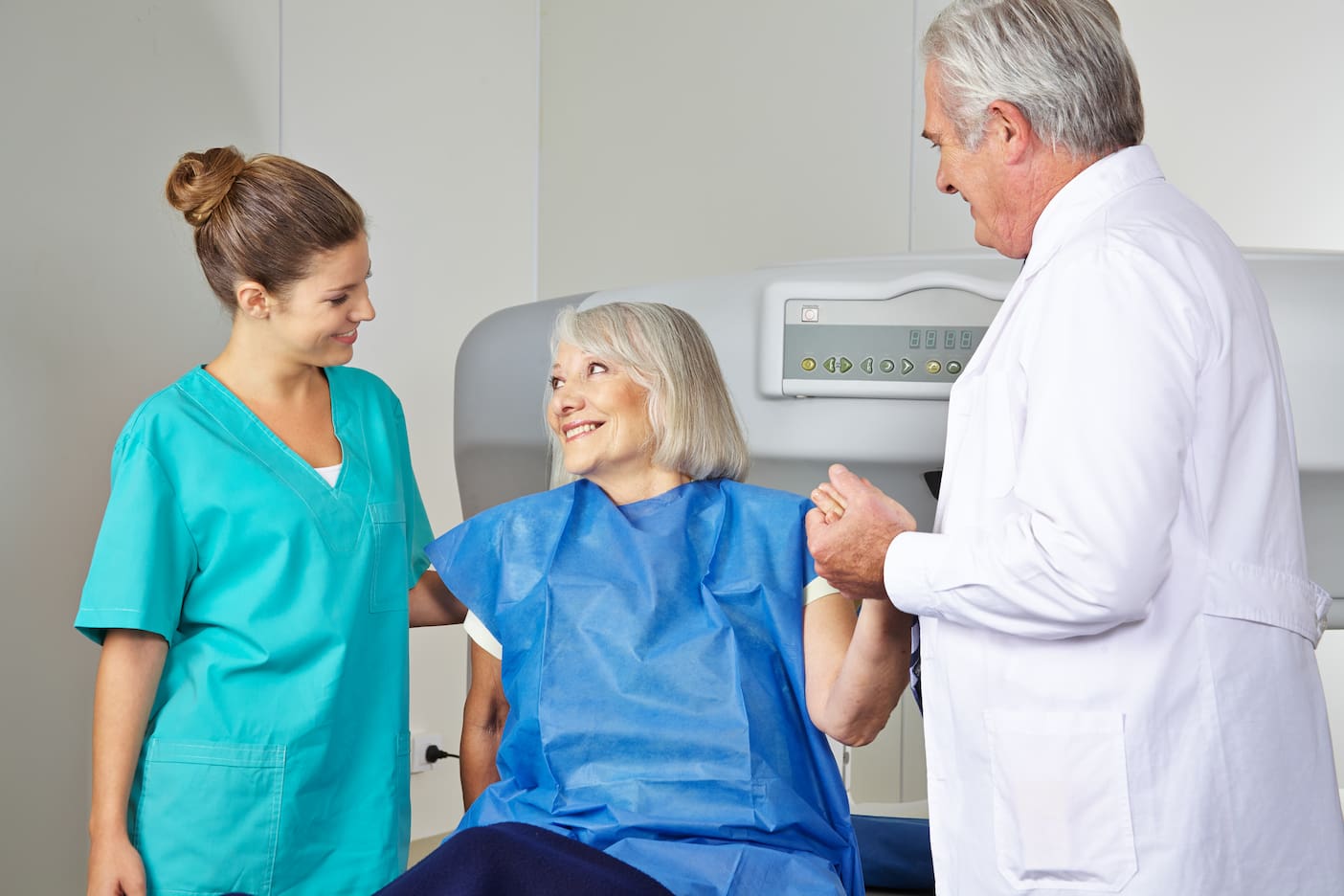
2026 Cost of Bone Density Test in Turkey
All types of medical attention, like a bone density test, are very affordable in Turkey. Many factors are also included in determining the cost of a bone density test in Turkey. Your process with Healthy Türkiye will last from the time you decide to have a bone density test in Turkey until the time you are fully recovered, even if you are back home. The exact cost of a bone density test procedure in Turkey depends on the type of operation involved.
The cost of a bone density test in Turkey does not demonstrate many variations in 2026. Compared to costs in developed countries like the United States or the UK, bone density test costs in Turkey are relatively low. So, it’s no wonder patients from across the world visit Turkey for bone density test procedures. However, price is not the only factor affecting choices. We suggest looking for hospitals that are safe and have good reviews for bone density tests on Google. When people decide to seek medical help for a bone density test, they will not only have had low-cost procedures in Turkey, but also the safest and best treatment.
At clinics or hospitals contracted with Healthy Türkiye, patients will receive the best bone density test from specialist doctors in Turkey at affordable rates. Healthy Türkiye teams provide medical attention, bone density testing procedures, and high-quality treatment to patients at a minimum cost. When you contact Healthy Türkiye assistants, you can get free information about the cost of a bone density test in Turkey and what this cost covers.
Why Is Bone Density Test Cheaper in Turkey?
One of the main considerations before traveling abroad for a bone density test is the cost-effectiveness of the whole process. Many patients think that when they add flight tickets and hotel expenses to their bone density test costs, it will become very expensive to travel, which is not true. Contrary to popular belief, round-trip flight tickets to Turkey for a bone density test can be booked very affordably.
In this case, assuming you are staying in Turkey for your bone density test, your total travel expense of flight tickets and accommodation will only cost less than any other developed country, which is nothing compared to the amount that you are saving. The question “Why is a bone density test cheaper in Turkey?” is so common among patients or people simply curious about getting their medical treatment in Turkey. When it comes to bone density test prices in Turkey, there are 3 factors allowing for cheaper prices:
The currency exchange is favorable for whoever looking for bone density test has a euro, dollar, or pound;
The lower cost of living and cheaper overall medical expenses such as bone density test;
For bone density test, incentives are given by the Turkish Government to medical clinics working with international clients;
All these factors allow for cheaper bone density test prices, but let’s be clear, these prices are cheaper for people with strong currencies (as we said, euro, dollar, Canadian dollar, pound, etc).
Every year, thousands of patients from all over the world come to Turkey to get a bone density test. The success of the healthcare system has increased in recent years, especially for bone density tests. It’s easy to find well-educated and English-speaking medical professionals in Turkey for all kinds of medical treatment, such as a bone density test.
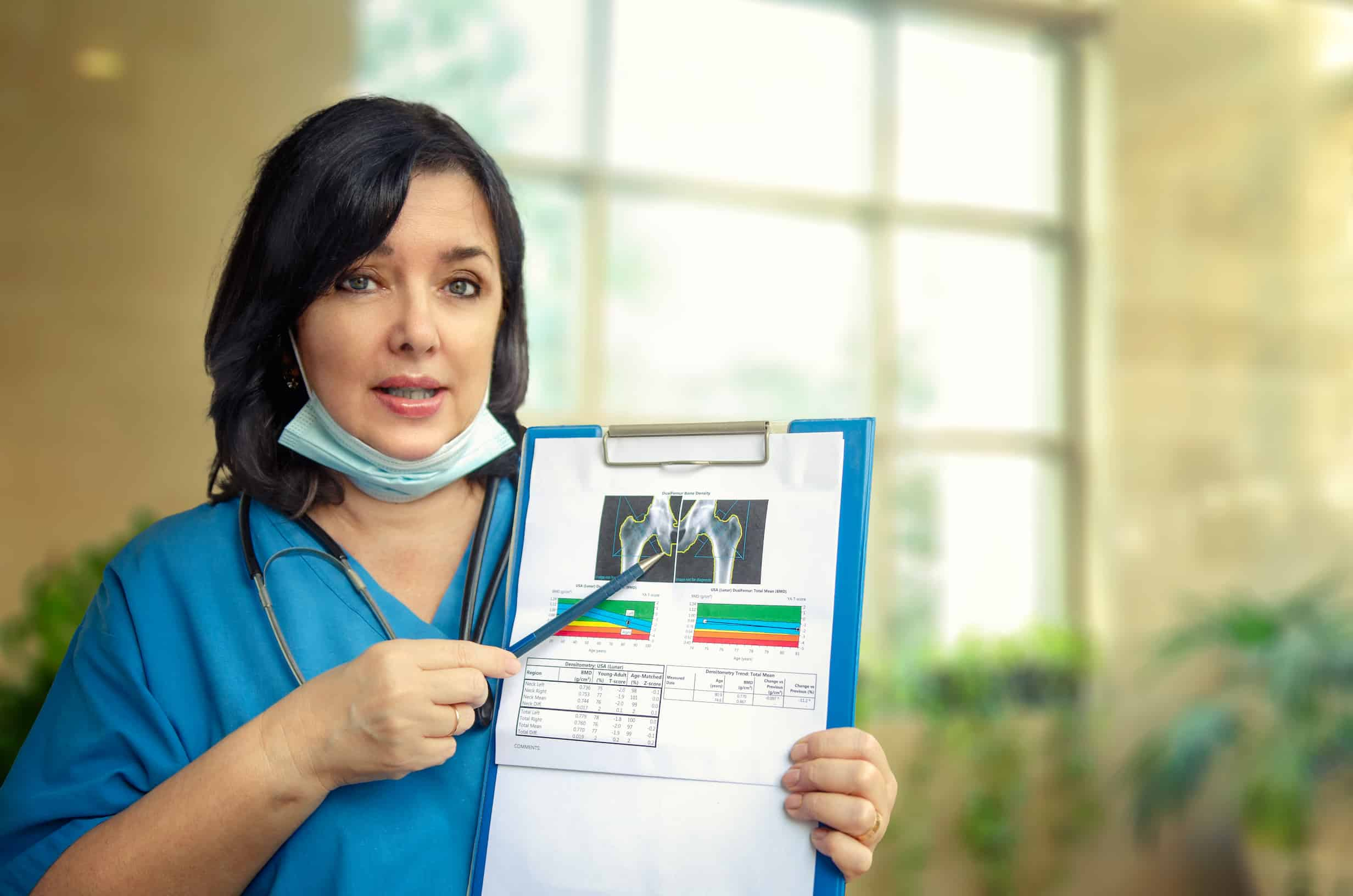
Why Choose Turkey for Bone Density Test?
Turkey is a common choice among international patients seeking an advanced bone density test. Turkey’s health procedures are safe and effective, with a high success rate, like the bone density test. The increasing demand for high-quality bone density tests at affordable prices has made Turkey a popular medical travel destination. In Turkey, a bone density test is performed by highly experienced and trained doctors with the most advanced technology in the world. A bone density test is done in Istanbul, Ankara, Antalya, and other major cities. The reasons for choosing a bone density test in Turkey are as follows:
High-quality hospitals: Joint Commission International (JCI) accredited hospitals have dedicated bone density test units that are specially designed for patients. International and national strict protocols provide effective and successful bone density test for patients in Turkey.
Qualified experts: The expert teams include nurses and specialist doctors, together to carry out bone density tests according to the patient’s needs. All the included doctors are highly experienced in performing bone density tests.
Affordable price: The cost of bone density test in Turkey is affordable compared to Europe, the USA, the UK, Singapore, Australia, etc.
The high success rate: Highly experienced specialists, the best available technology, and stringently followed safety guidelines for post-operative care of the patient, resulting in a high success rate for bone density test in Turkey.
To enhance the reliability of bone density test results in Turkey, a recent study incorporated a diverse sample population, including individuals with varying demographic characteristics and medical histories. The comprehensive analysis demonstrated the consistent accuracy and effectiveness of dual-energy x-ray absorptiometry (DEXA) in diagnosing osteoporosis and assessing the risk of osteoporotic fractures, reaffirming its status as the standard and widely accepted method in the country.
Is Bone Density Test Safe in Turkey?
Did you know Turkey is one of the most visited destinations for bone density test in the world? It is ranked as one of the most visited tourist destinations for bone density test. Over the years, it has also come to be a very popular medical tourism destination, with many tourists coming in for bone density test. There are so many reasons why Turkey stands out as a leading destination for bone density test. Because Turkey is both safe and easy to travel to, with a regional airport hub and flight connections to pretty much everywhere, it is preferred for bone density test.
The best hospitals in Turkey have experienced medical staff and specialists who have performed thousands of medical services such as bone density test. All procedures and coordination related to bone density test are controlled by the Ministry of Health in accordance with the law. Over many years, the greatest progress in medicine has been observed in the field of bone density test. Turkey is known among foreign patients for its great opportunities in the area of bone density test.
To emphasize, besides the price itself, the key factor in selecting a destination for a bone density test is certainly the standard of medical services, the hospital staff’s high level of expertise, hospitality, and the safety of the country.
All-Inclusive Packages for Bone Density Test in Turkey
Healthy Türkiye offers all-inclusive packages for a bone density test in Turkey at much lower prices. Extremely professional and experienced doctors and technicians carry out the high quality bone density test. The cost of a bone density test in European countries can be quite expensive, especially in the UK. Healthy Türkiye provides cheap all-inclusive packages for a long and short stay of bone density test in Turkey. Because of many factors, we can provide you with many opportunities for your bone density test in Turkey.
The price of a bone density test differs from other countries due to medical fees, staff labor prices, exchange rates, and market competition. You can save much more on a bone density test in Turkey compared to other countries. When you purchase bone density test all-inclusive package with Healthy Türkiye our healthcare team will present of hotels for you to choose from. In bone density test travel, you will have the price of your stay included in the all-inclusive package cost.
In Turkey, when you purchase bone density test all-inclusive packages through Healthy Türkiye, you will always receive VIP transfers. These are provided by Healthy Türkiye, which is contracted with highly qualified hospitals for bone density test in Turkey. The Healthy Türkiye teams will organize everything about the bone density test for you and have you picked up from the airport and safely brought to your accommodation. Once you are settled in the hotel, you will be transferred to and from the clinic or hospital for the bone density test. After your bone density test has been successfully completed, the transfer team will return you to the airport in time for your flight home. In Turkey, all packages of bone density tests can be arranged upon request, which relaxes the minds of our patients. You can reach out Healthy Türkiye for everything you need to know about bone density test in Turkey.
The Best Hospitals in Turkey for Bone Density Test
The best hospitals in Turkey for bone density test are Healthy Türkiye, Memorial Hospital, Acıbadem International Hospital, and Medicalpark Hospital. These hospitals attract patients from all over the world seeking bone density test due to their affordable prices and high success rates.
Best Doctors and Surgeons in Turkey for Bone Density Test
The best doctors and surgeons in Turkey for bone density test are highly skilled professionals who offer specialized care and advanced procedures. With their expertise and state-of-the-art techniques, these specialists ensure that patients receive high-quality bone density test and achieve optimal health results.

Frequently Asked Questions
Generally, you may resume your usual activities immediately after your bone scan. The results of the bone density test should be available to your expert doctor within 24 hours after the test. Your expert doctor at Healthy Türkiye will discuss the test results with you.
You might be told to stop taking calcium supplements 24 to 48 hours before your bone density test. Also, you must avoid wearing metal jewelry or clothes with metal parts, such as buttons or buckles.
A bone density scan uses very low doses of radiation. It is safe for most people. But it is not suggested for pregnant women. Even low doses of radiation may harm an unborn baby. Be sure to tell your expert doctor if you are pregnant or think you might be pregnant.
On the day of the bone density test, you may eat normally. You should not take calcium supplements for at least 24 hours before your test. You can wear loose, comfortable clothing, avoiding garments that have zippers, belts, or buttons made of metal.
If the calcium supplement is not completely dissolved, it will be interpreted by the bone density test instrument as extra bone and might produce an inaccurate reading.
A bone density test is simple, easy, and painless. This test applies small amounts of radiation to determine the density or thickness of bones in the hip, spine, and wrist. Dress comfortably; it is not necessary to undress for this test. We do recommend that you do not wear an underwire bra, metal buttons, zippers, or hooks.
You should wear loose and comfortable clothing with no metal. Remove any jewelry or other objects that might interfere with the study. Patients should not use any deodorant, powder, or perfume on the day of the test.
An X-ray detector inside the scanning arm measures the number of X-rays that have passed through your body. This information will be used to create an image of the scanned site. The scan generally takes 10 to 20 minutes. You can go home after you have had it done.
Calcium does not dissolve fast and could show up in the bone density test. Getting your calcium intake through more natural means on the day of the test is permitted and will not affect the scan. So, you may consume calcium-rich foods and drinks, such as milk, yogurt, and orange juice.
A bone density test is like an x-ray or scan of your body. The bone density test doesn’t hurt, and you don’t need to do anything to prepare for it. It only takes about 15-20 minutes.
Bone density tests are suggested for all women age 65 and older, and for younger women at higher-than-normal risk for fracture. Men may want to discuss osteoporosis screening with their expert doctor if they’re over age 70 or at high risk for thinning bones.
A bone density test doesn’t reason any side effects or complications. Most of the radioactive tracer is eliminated from your body within 24-36 hours. Small amounts might remain for as long as three days. While the test can help define problems in bone metabolism, it doesn’t necessarily reveal their cause.
